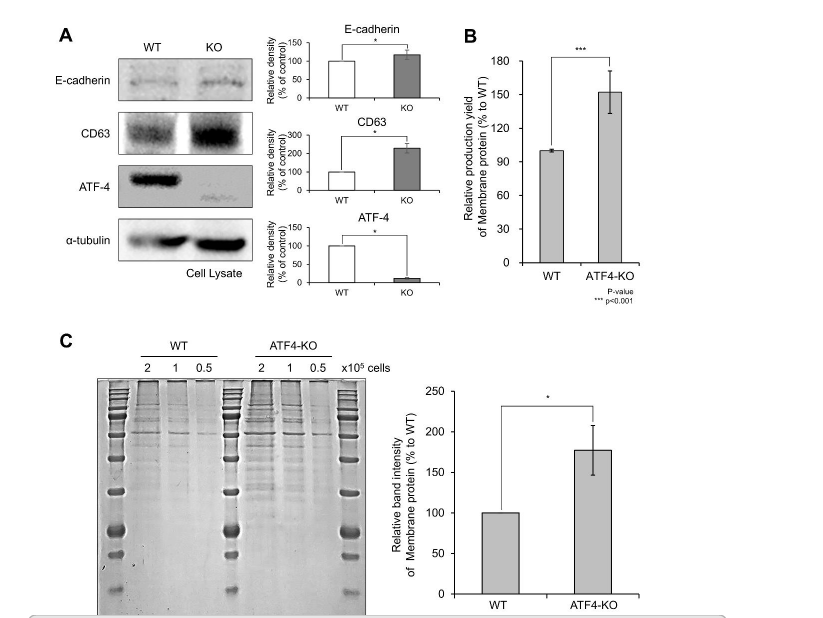Enhanced membrane protein production in HEK293T cells via ATF4 gene knockout: A CRISPR-Cas9 mediated approach
DOI:
https://doi.org/10.17305/bb.2024.11519Keywords:
CRISPR-Cas9, gene editing, HEK293T cells, ATF4 knockout, KO, membrane protein productionAbstract
HEK293T cells are extensively utilized for therapeutic protein production due to their human origin, which enables accurate post-translational modifications. This study aimed to enhance membrane protein production in HEK293T cells by knocking out the ATF4 gene using CRISPR-Cas9 technology. The ATF4 gene was edited by infecting HEK293T cells with a lentivirus carrying optimized single-guide RNA (ATF4-KO-3) and Cas9 genes. Comparative evaluations were conducted using all-in-one and two-vector systems. Genome sequencing and membrane protein productivity of ATF4-knockout (KO) cells were compared to wild-type (WT) cells using next-generation sequencing (NGS) and a membrane protein isolation kit, respectively. Single-cell analysis confirmed gene editing patterns, with NGS verifying the intended deletions. Membrane protein production was also assessed indirectly via flow cytometry, analyzing cells expressing Membrane-GFP. Compared to WT cells, ATF4-KO cells exhibited a significant increase in membrane protein production, with a 52.2 ± 19.0% improvement. Gene editing efficiency was compared between the two delivery systems, with the two-vector system demonstrating higher efficiency based on T7 endonuclease I assays. Western blot analysis confirmed ATF4 suppression and increased expression of membrane proteins, including E-cadherin and CD63. Quantitative analysis via PAGE revealed a 77.2 ± 30.6% increase in purified membrane protein yields, consistent with the observed enhancements. Flow cytometry using Membrane-GFP further demonstrated a 22.9 ± 9.7% increase in productivity. In summary, ATF4 knockout significantly enhances membrane protein production in HEK293T cells, offering potential improvements in biopharmaceutical manufacturing by enabling more efficient protein synthesis.
Citations
Downloads

Downloads
Published
Issue
Section
License
Copyright (c) 2025 Byung-Jo Choi, Ba Reum Kim, Ho Joong Choi, Ok-Hee Kim, Say-June Kim

This work is licensed under a Creative Commons Attribution 4.0 International License.









